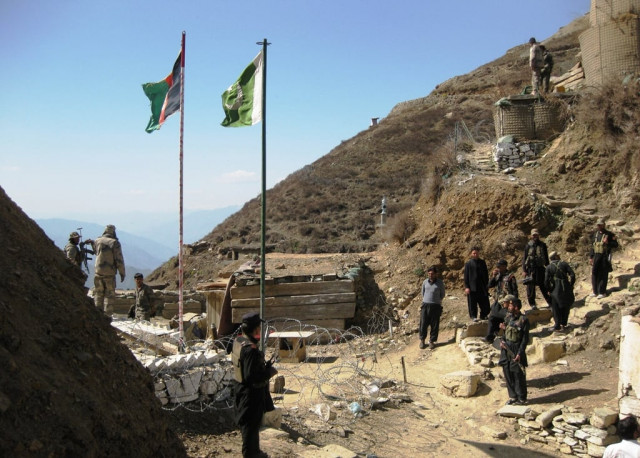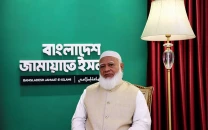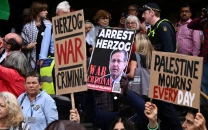Mistrust, confusion led to NATO airstrike: Pentagon
Nato’s investigating officer did not know the name of the check-post where the airstrikes took place.

The briefing, however, raised questions over the thoroughness of the process – Nato’s investigating officer did not know the name of the check-post where the airstrikes took place.
US Air Force Special Operations Command Brigadier General and the Nato airstrike Investigating Officer Stephen Clark said
a lack of trust and series of miscommunications contributed to the events that took place on November 26, the day a Nato airstrike claimed the lives of 24 Pakistani soldiers.
Briefing reporters at the Pentagon via phone, Brig Gen Clark said there was an overarching lack of trust in giving Pakistan precise information about the US positions during the operation — following a general sentiment expressed during interviews conducted in the investigation that Isaf operations in the past are believed to have been compromised when Pakistan was told specifics about US positions. On the other hand, Brig Gen Clark also said Pakistanis themselves have been reticent to full disclosure of specific locations.
Meanwhile, Pentagon Press Secretary George Little also told reporters that US Chairman Joint Chiefs of Staff General Dempsey and General Mattis have called Army Chief General Ashfaq Parvez Kayani.
“We are going to share our findings with the government of Pakistan.”
Confusion
Outlining the events of November 26, Clark said the mission, which was to be conducted by nearly 120 personnel, was intended to remain within the Afghanistan border, and that the US forces never anticipated that Pakistani military would be stationed there. Clark said that when US forces came under fire, there was a lot of confusion from both sides.
According to the Air Force commander, the ground force officers had been told that there were no Pakistani military in the area, but they were re-checking.
“This the first point where we found a series of miscommunications to have occurred. That was the first point of failure which might have potentially stopped this engagement,” he said.
The US forces believed it was insurgents firing at them from the higher ridge. He added that the US forces ceased engagement after they were told that there were border posts in the area. No rounds were fired after that information was given, he added.
Clark said that the investigation was conducted principally out of Bagram, with visits to the Nawa Border Coordination Centre and Kabul. Sixty interviews were conducted for the purpose of this investigation.
Responding to a question, the Air Force commander said: “Lack of Pakistani participation in this investigation is regrettable, and is a significant and important part missing from this report.”
Nato, while expressing its condolences to the families of those who lost their lives in the airstrike, said that their investigation has found that “the combined international and Afghan force was initially fired upon by unidentified forces, then believed not to be Pakistani military, and legitimately responded in self-defence. The investigation has ascertained that a series of mistakes were made on both sides in failing to properly coordinate their locations and actions, both before the operation and during the resulting engagement.” Nato said its actions were “legitimate within the Laws of Armed Conflict and within their Rules of Engagement.” “For the loss of life and for the lack of proper coordination between US and Pakistani forces that contributed to those losses, we express our deepest regret.
“We further express sincere condolences to the Pakistani people, to the Pakistani government, and most importantly to the families of the Pakistani soldiers who were killed or wounded,” said the Department of Defence.
However, in late breaking news, it was being reported that the US, through a statement by the White House, had accepted responsibility for the attack.
Published in The Express Tribune, December 23rd, 2011.
____________________________________________________
[poll id="602"]



















COMMENTS
Comments are moderated and generally will be posted if they are on-topic and not abusive.
For more information, please see our Comments FAQ